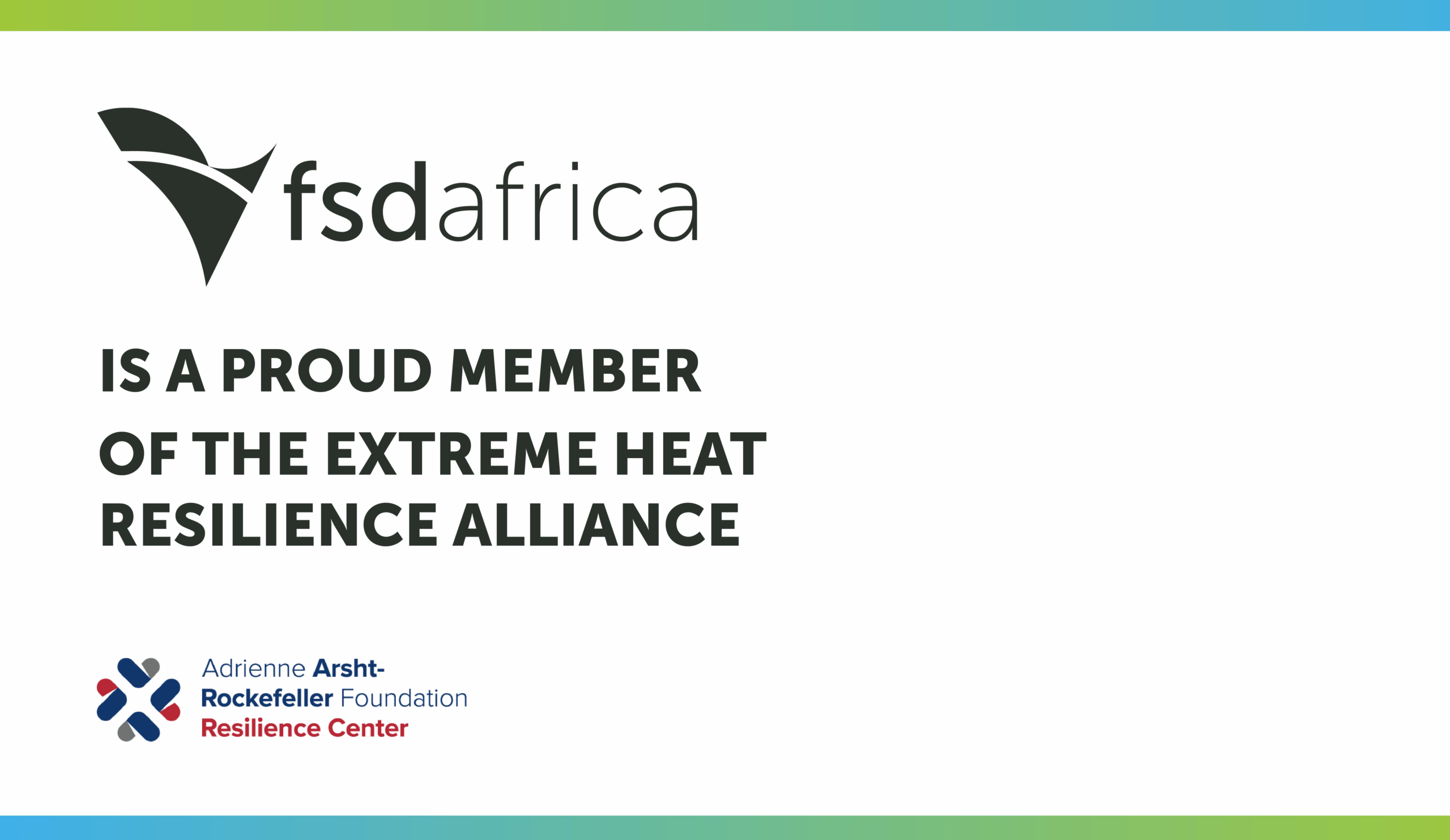We are proud to announce that FSD Africa is now a member of the Extreme Heat Resilience Alliance (EHRA), joining over 30 global EHRA partners.
The EHRA was formed in August 2020 by the Atlantic Council’s Adrienne Arsht-Rockefeller Foundation Resilience Center in response to the growing threat from climate-related extreme heat events, particularly in cities.
With Arsht-Rock’s support, EHRA has assembled a diverse group of experts to increase collective and individual resilience to extreme heat through education, policy, finance, and implementation solutions for one billion people around the globe, aiming to reduce the negative health and economic impact of extreme urban heat on vulnerable people. Africa is particularly vulnerable to extreme heat. It is the hottest continent on earth, holding many heat-related records. The continent has the hottest extended region year-round, the areas with the hottest summer climate, the highest sunshine duration, and more. According to the UN IPCC, mean annual temperature rise over Africa, relative to the late 20th century mean annual temperature, is likely to exceed 2°C by the end of the century, with a likelihood of land temperatures rising faster than the global average with severe consequences for water availability agricultural systems, and health outcomes.
“FSD Africa is joining the EHRA in recognition of the impact of extreme heat on Africa’s population and its threat to the realisation of a sustainable future. Our commitment is to contribute to the urgent collective action required to address the short and long-term shocks of extreme heat, with a focus on vulnerable African communities.”
Kelvin Massingham – Director, Risk and Resilience
In the last five years, FSD Africa has implemented several climate-related projects, including the Green Bond Projects, mobilising over £130m for climate mitigation projects. In addition, FSD Africa is currently exploring flood and heat resilience projects in African cities affected by extreme heat weather conditions, and climate-related effects.
The work of the EHRA is focused on five areas:
- Educating decision-makers linked to vulnerable communities about the risks and impacts of extreme heat by making data and risk assessment tools more widely available;
- Recommending and working to enact policies that help governments increase heat resilience in their communities;
- Providing better access to affordable financing solutions for heat reduction or protection, including extreme heat risk transfer products;
- Quantifying the economic impacts of extreme heat to raise awareness and motivate action;
- Implementing replicable, effective on-the-ground interventions for extreme heat reduction.



